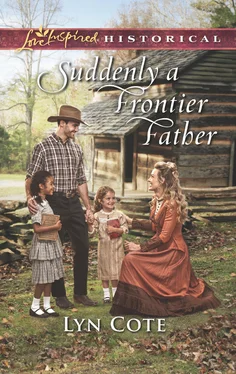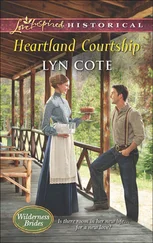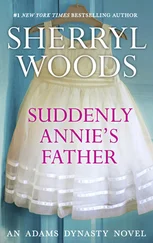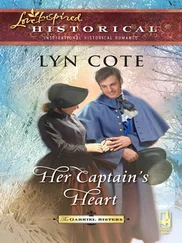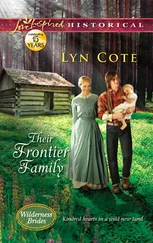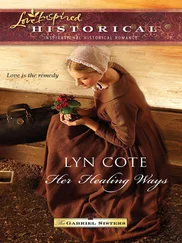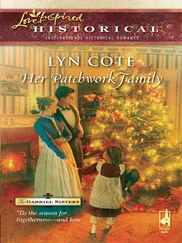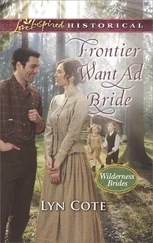He then remembered more of Emma’s words and realized that he would have to face the whole town the day after next at church. His hurt ankle had given him an excuse to bypass last week’s service. But that excuse had lapsed. Miss Emma Jones was right. He must publicly face the community with his girls, starting Sunday.
He was feeling the same dread and anticipation, a heavy weight in his middle, that he’d faced many times in the war. The mornings just before a battle, everyone—except for those who thought they needed to lighten the somber mood—had been silent, barely speaking, girding themselves for the imminent crucible of cannon, gunfire, black smoke and perhaps death.
He tried to shake off the feeling. No one would be firing at him on Sunday. But he worried for Birdie and Charlotte and any negative reactions to them. He didn’t want them to be hurt. His only hope was from the friends who’d stood by him. One was Noah Whitmore, the preacher, who’d written the orphan home’s director that he was fit to adopt his girls. Would people remember where they were—in God’s house? At least no one knew the dark secret he must—above all else—keep hidden.
Chapter Three
Mason thought he’d prepared himself for meeting Emma on Sunday morning, but he hadn’t expected them to enter the combined schoolroom-church at almost the same moment from opposite ends of the room, he from the school entrance and she from the teacher’s quarters. He halted in midstep.
And so did she. She wore a flattering rose-pink dress with ivory lace at the neck. Her beauty took his breath. But instantly he shook himself inwardly and moved forward. In the past days her kindness to Birdie and Charlotte had drawn his gratitude, making him more vulnerable to her. He steeled himself against regret. I have to get over missing my chance with her.
He’d been gone for half the year, but he hoped no one had taken his pew. He forced himself to nod to a few people he knew even though they were gawking. Then he focused on getting the girls settled beside him. Thanks to Asa’s wife, the girls’ dresses were clean and pressed as well as his own white Sunday shirt.
He tried not to track Emma from the corner of his eye, but he glimpsed her full skirts swish past them as she joined her sister and family in the pew to his right, forward a row. Bitter thoughts of his father and how once again he had ruined something for Mason rushed into his mind. He bowed his head, willing the thoughts away. What was done was done and could not be changed. He still had his land, his crops and now, his girls.
Hoping that no one would hurt them with unthinking or unkind remarks, he gathered them close to him and kissed their foreheads. “Now, you girls be good,” he murmured.
“We always be good in church,” Birdie murmured and signed to Charlotte, who looked up at him and smiled timidly.
His poor little sister. She so rarely looked happy. Had what Mrs. Hawkins, the lady who ran the orphans’ home in Illinois, said been true? Was hysterical deafness even real? Was there a chance Charlotte might hear again someday? He shook his head. He didn’t have that kind of faith.
Tall and middle-aged, Mrs. Lavina Caruthers moved to the front as Noah Whitmore raised his arms. “Let us pray.” After Noah’s prayer, Lavina led them in singing the opening hymn.
Then Gordy Osbourne, a young deacon, rose and began reading the scripture passage, Numbers 12.
“‘And Miriam and Aaron spake against Moses because of the Ethiopian woman whom he had married: for he had married an Ethiopian woman. And they said, Hath the Lord indeed spoken only by Moses? hath he not spoken also by us? And the Lord heard it.’”
Mason never had heard this passage that he could recall. The reading and the story continued, ending with God chastising Miriam and Aaron, the sister and brother of Moses. God had turned Miriam’s skin leprous for seven days in punishment of her speaking against Moses because of his choice of a dark-skinned bride. Evidently the word about Mason’s girls had spread to the preacher. Noah’s boldness in choosing this passage hit Mason as if a rod had been rammed up his spine. Noah’s courage in confronting prejudice humbled him.
“Here endeth the scripture for today,” Gordy finished and sat down, his face flushed.
Lavina rose again and began the second hymn. The congregation rose to sing, but many cast glances over their shoulders at him, and others stood stiffly facing forward.
Mason hoped that Noah’s boldness would not alienate his congregation and cause division here.
At the end of the hymn, Lavina remained standing. “Our preacher has said that I may make an announcement of a sewing and knitting day this coming Saturday morning here. My son Isaiah, who is engaged in mission work north of here with the Chippewa tribe, will be visiting us before winter, and we’d like to have a large donation of quilts, mittens, socks and scarves to send back with him. There is great need among the tribe.” Lavina smiled. “Thank you.”
Noah approached the lectern and bowed his head in silent prayer. Then he went on to preach about the passage Gordy had read, but without calling attention to the situation of the little black girl sitting beside Mason. Noah preached about God calling Moses a humble man and how prejudice had caused his siblings to react with pride and spite and God’s judgment on the proud and unkind. Mason approved. Noah had laid down the precept of God’s opinion of prejudice and spite. Mason didn’t pray often, but he did now, asking God for kindness to be shown here to his little ones.
Everyone rose and sang the closing hymn, “Jesus, Lover of My Soul.” Then Gordy prayed and asked God to bless their week and the coming harvest.
Mason raised his head, feeling refreshed, yet still cautious. Now would come the questions and perhaps the rejection by many of those who had once welcomed him. Against his will his gaze sought Emma to his right. He remembered her kindness to his girls. Again she affected him. He stiffened his resolve to resist the pull to her and led the girls to the aisle.
Indeed, some people brushed past him, but not all. Levi, the blacksmith, and his wife, Posey, stopped. She shook Mason’s hand and then glanced downward. “And how are you, pretty little things?”
“We’re fine, ma’am,” Birdie chirped. “Thank you for askin’.”
At that moment, Emma walked by him.
“Good morning, Mr. Chandler,” she said in passing. “Good morning, Birdie and Charlotte.”
Mason returned the greeting, gripping his tight mask in place. He wished he didn’t react to her, wasn’t so aware of her.
Then she moved on, greeting others.
Mason turned to Levi’s wife again. His heart thumped dully. If Emma had been his wife, he wouldn’t feel so alone, so inept caring for his children. What might have been...
* * *
Ignoring the pull that wanted her to stay and talk to Mason, Emma moved out into the sunshine. As usual, people milled around in clusters in the school yard after Sunday worship, the social event of each week.
Conscious of her role as teacher, Emma moved from group to group, speaking to the parents of each of her students. Out of the corner of her eye, she glimpsed Mason step out of the schoolhouse. She forced herself not to turn to watch him. But she noted that many others watched, almost gawking at him and his girls. Would someone say or do something rude, hurtful? Her lungs tightened as if she herself were bracing for a blow.
As she moved through the people, she sensed an unusual mood. People nodded to her but they said few words and looked somehow stiff. She experienced an unusual tension herself. She could not stop herself from straining to hear the few words Mr. Chandler spoke to others and his girls.
Читать дальше
